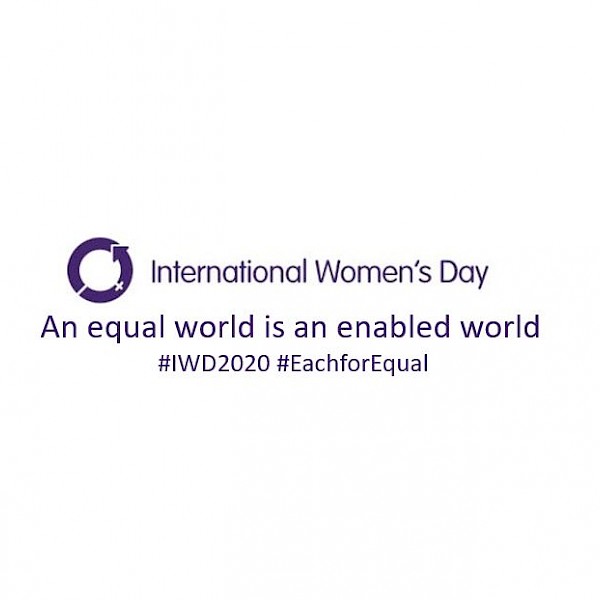Is the tech sector forging a more gender equal workforce?



Females represent just 17% of the tech work force and although there have been many initiatives and a refocus to get more women into tech, this percentage has not changed massively in recent years.
"I think representation of females in tech is gradually improving, especially for the more technical roles like Developers, Engineers, Product Managers” says Kam Sidhu, Director - Global Project Delivery at Voxpopme. “These roles were typically held by males, but this is changing. When I entered the tech sector, there were fewer women taking computing as a discipline at a higher education level. Now with more focus on L&D and upskilling, there are more women doing tech related further education courses and learning the skills for a career in tech.”
Ruth Woodbridge, Digital Transformation Manager/Scrum Master at the Scottish Government has found that attitudes towards women have improved. “When I started out early in my career, I was often the only woman working on any given project and although this still happens at times, it is much less frequent. More importantly I feel that I am treated as an equal by all of my peers, regardless of their gender.”
A change in attitudes towards work by both individuals and businesses has also made the sector more open to gender equality. Jo Wickremasinghe, Product Director at Zoopla notes that the change in flexible working has been a game changer. “The number of men taking flexible working has been a big improvement for the sector. I think this is important as it means it is becoming less and less the responsibility of the woman/mother in families to have to be flexible with childcare.”
A recent employment survey identified flexible working as one of the top 5 benefits that job seekers look for in a new employer. “The more fathers working flexibly, the more equal the responsibilities of child-care becomes” says Wickremasinghe. “Technology has been a huge enabler of this, allowing employees to work remotely more effectively.”


Technology is often seen as AI orientated, analytical crunching, robotic and humanless. Compared to industries which have a strong female representation such as healthcare, teaching, hospitality - these tend to be more human centred sectors where empathy and relationship management is critical.
Wickremasinghe disagrees. “Think about some of the recent great tech products. If we are to use technology to best benefit society then it also needs to be far more human centred and empathetic. Future tech successes will be achieved through a greater focus on human centred design, developed by a team that is representative of its users and more women in the industry will play a vital role in achieving this.”
Recognising that women have different challenges from men is also an important step. Where some do have family commitments, others are driven in their careers and want to work in an industry where progression is clearly an option. “I think these two elements need to be looked at holistically” says Woodbridge. “Businesses need to be flexible and offers options rather than it being a choice. The tech sector can learn from this approach and maximise its appeal to a lot of talented women who may become the future role models.”


The overall consensus is the more hands on experience girls get, the more likely they are to be interested in a future career in technology. The next generation live on their phones and use technology constantly. By opening their minds so that they start thinking about how they can create their own technology will bring more people into the industry.
“I think early aspirations are important” says Woodbridge. “They can often help to carve out a pathway for the future, and nurture an interest and ability in a particular area.”
“Offer work experience placements to secondary school age girls” says Sidhu. “Allow them to get a taste of what the tech industry is like to work in.” Wickremasinghe agrees. “There needs to be more grass root investment with companies working with education partners to provide meaningful work experience, or sponsor out-of-school activities and weekend clubs. We need to have more girls across STEM subjects and activities like coding at an early age if we expect to see these girls flowing through into the industry.”
Woodridge agrees and notes that there is no single linear path into a tech career. “I’ve seen some really talented young people come through apprenticeship schemes for example. So I think it’s about offering a range of entry options that cater for a broad range of pathways into a tech career.”
Wickremasinghe points out that there also needs to be more inspiring female role models. “There is still a lack of females at exec level. Companies need to do more to get women into exec positions (coaching and mentoring them into those roles early) to set a benchmark and point of inspiration to keep women in the sector.”

Empiric is a multi-award winning business and one of the fastest growing technology and transformation recruitment agency's specialising in data, digital, cloud and security. We supply technology and change recruitment services to businesses looking for both contract and permanent professionals.

Read more (pdf download)
Empiric are committed to changing the gender and diversity imbalance within the technology sector. In addition to Next Tech Girls we proactively target skilled professionals from minority groups which in turn can help you meet your own diversity commitments. Our active investment within the tech community allows us to engage with specific talent pools and deliver a short list of relevant and diverse candidates.
For more information contact
02036757777
To view our latest job opportunities click here.